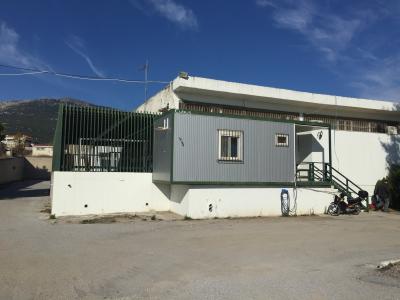Post by Mary Bosworth, Director, Border Criminologies. Mary is on Twitter @MFBosworth. This is the first instalment of Border Criminologies’ themed series on 'Immigration Detention in an Era of Mass Mobility' organised by Mary.
As countries around the world face a growing influx of irregular migrants, many have turned to immigration detention as a means of managing arrivals and enforcing removals. Each year, close to 600,000 migrants are deprived of their liberty for administrative purposes on the European Union (EU)’s territory alone; in the UK around 4000 individuals are held under similar powers. Despite the scale of this practice, little independent academic research has been conducted inside these sites, as governments guard research access to them jealously.

Nonetheless, a body of work on these sites is growing. Since I first began interviewing staff and detainees in British immigration removal centres in 2009, the literature on this topic has expanded enormously. It has been produced by a range of authors, grounded in different academic disciplines and outside the academy altogether. Non-governmental organisations (NGOs) and activist groups have expended considerable efforts in gathering testimonies from current and former detainees across a number of countries.
In the US, legal scholars like Emily Ryo, Ingrid Eagly and Juliet Stumpf have been busy, filing FOI requests to obtain data, interviewing clients, suing the government, seeking legal solutions. Large-scale projects like the Innovative Law Lab draw together practitioners to assist those behind bars. In the UK, large-scale investigations have shed light on the treatment of vulnerable detainees, and the impact of the uncertain duration of detention. While the legal scholarship here remains under-developed, compared to the US, the social-science on immigration detention is flourishing.
Here in Oxford, at Border Criminologies, we have a particular interest and expertise in detention. Multiple studies are in process, from a collaborative art project, to a comparative case study of the role of NPMs in safeguarding human rights in sites in Greece, Hungary, Italy and Turkey. Two of my DPhil students, Alice Gerlach and Dominic Aitken are writing their dissertations on detention. One MSc student, Liz Kullman, will be examining the detention of ex-prisoners post sentence in prison. My own work on staff and the quality of life in IRCs continues, interspersed with analysis of practices in France.
Over the next few months, we will be running a series of posts about detention that capture all of these approaches. In so doing, we hope not only to show case research of a number of our Border Criminologies members, but also to roam around the emerging field of studies focused on this practice. It continues to be difficult to get into these places. Yet, the field is vibrant and multi-faceted. As evidence mounts about the nature and impact of these sites, finding alternatives to them becomes ever more urgent. If you would like to contribute to this series, please email us.
Any comments about this post? Get in touch with us! Send us an email, or post a comment here or on Facebook. You can also tweet us.
__________
How to cite this blog post (Harvard style)
Bosworth, M. (2017) Immigration Detention in an Era of Mass Mobility. Available at: https://www.law.ox.ac.uk/research-subject-groups/centre-criminology/centreborder-criminologies/blog/2017/05/immigration (Accessed [date])
Share:








